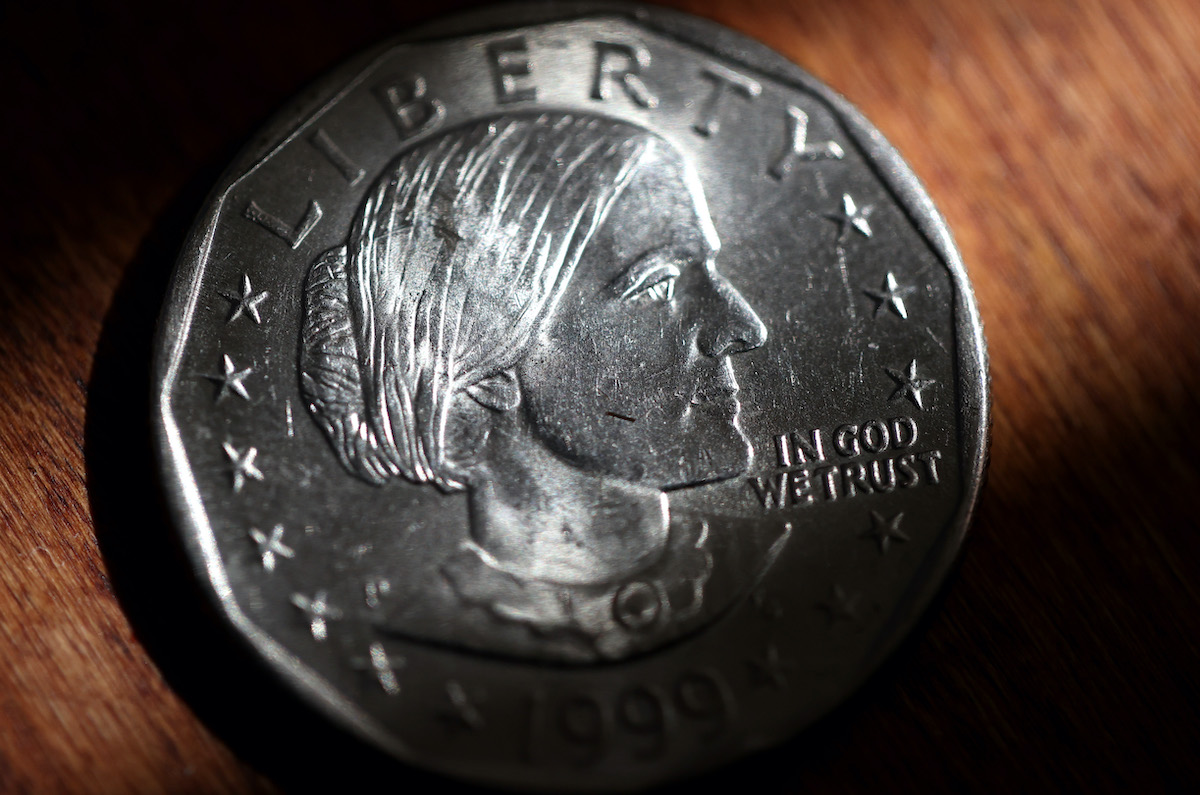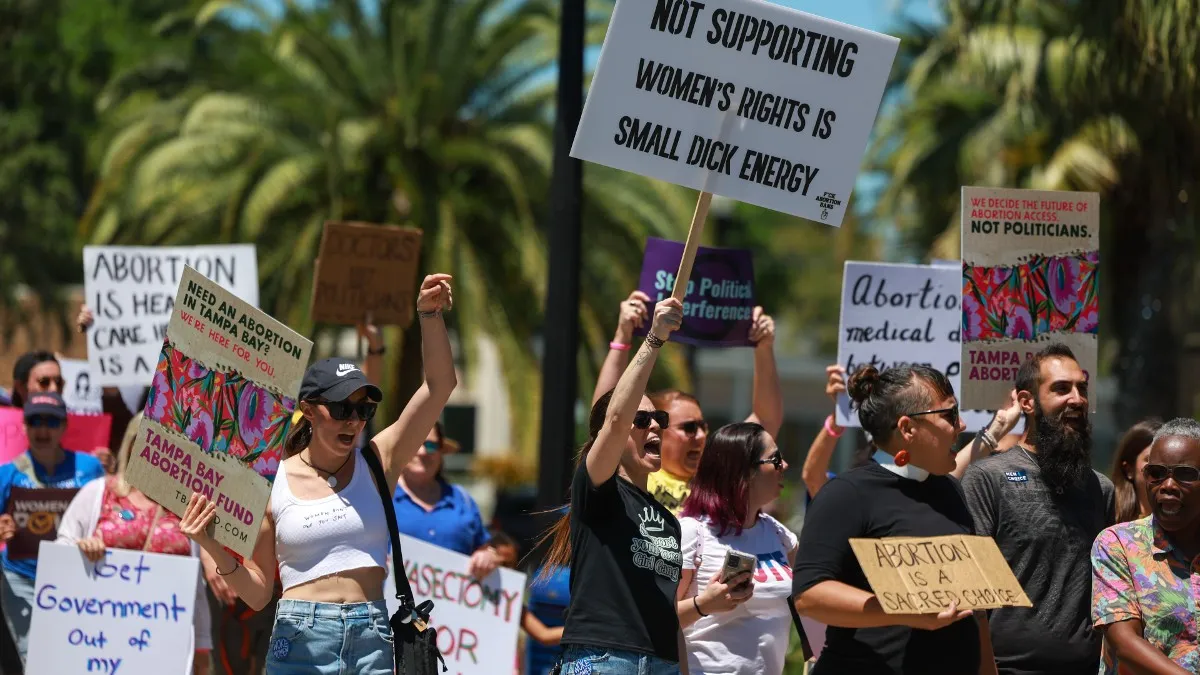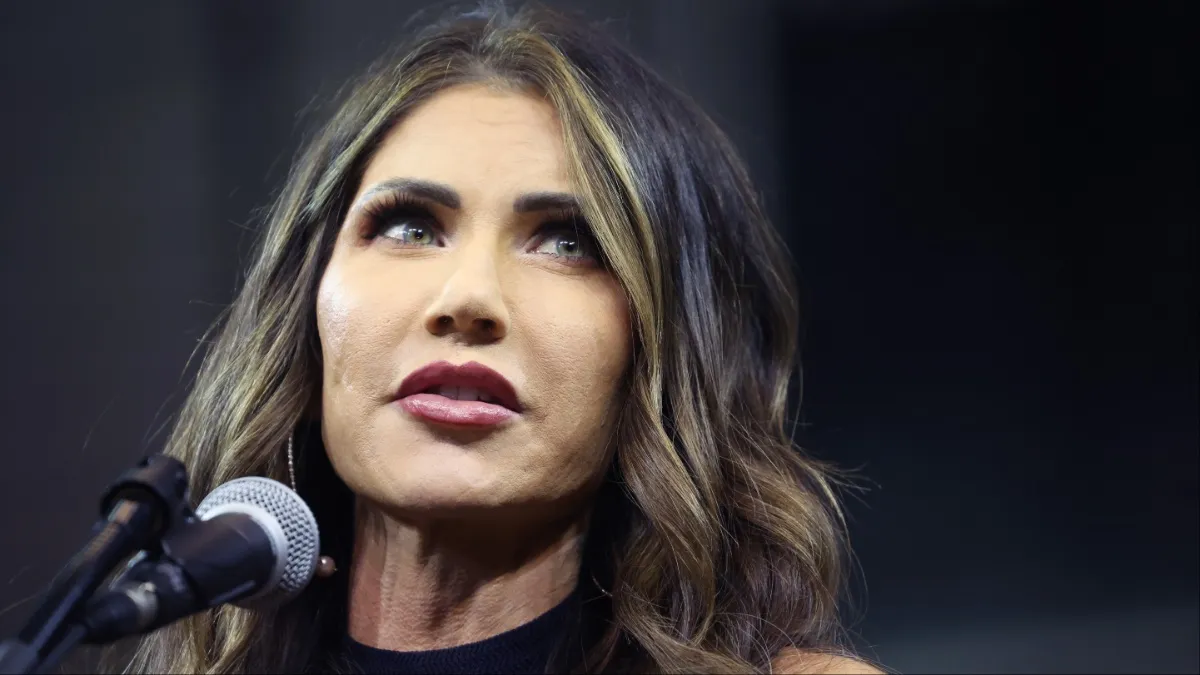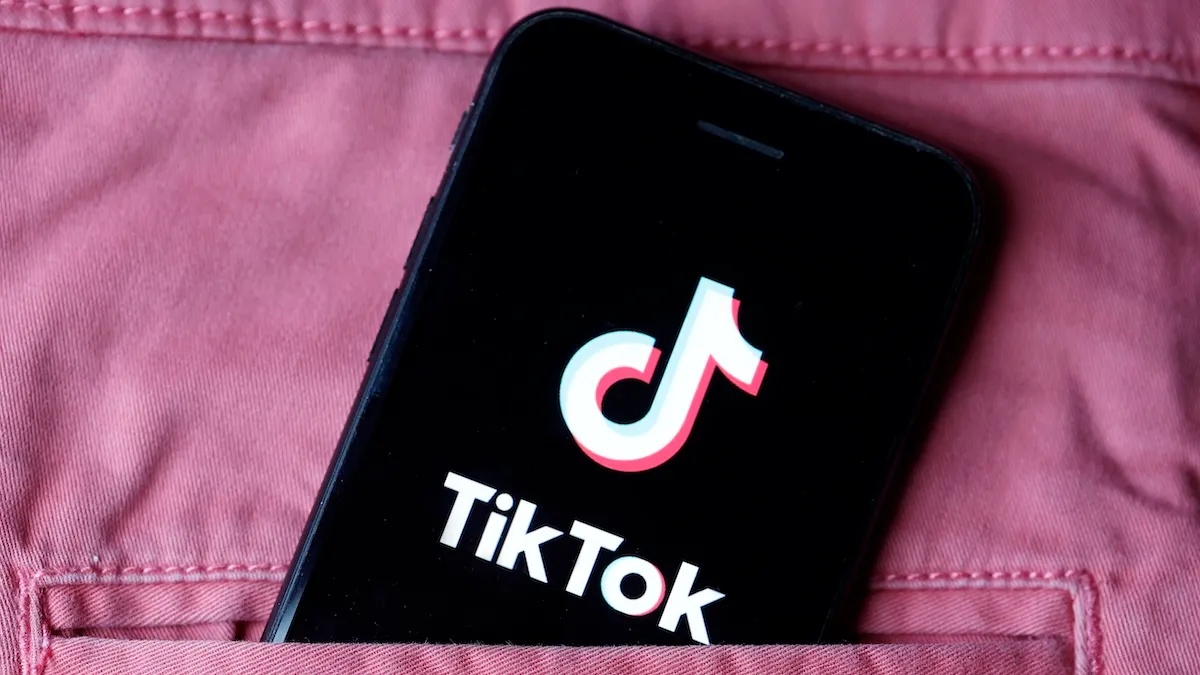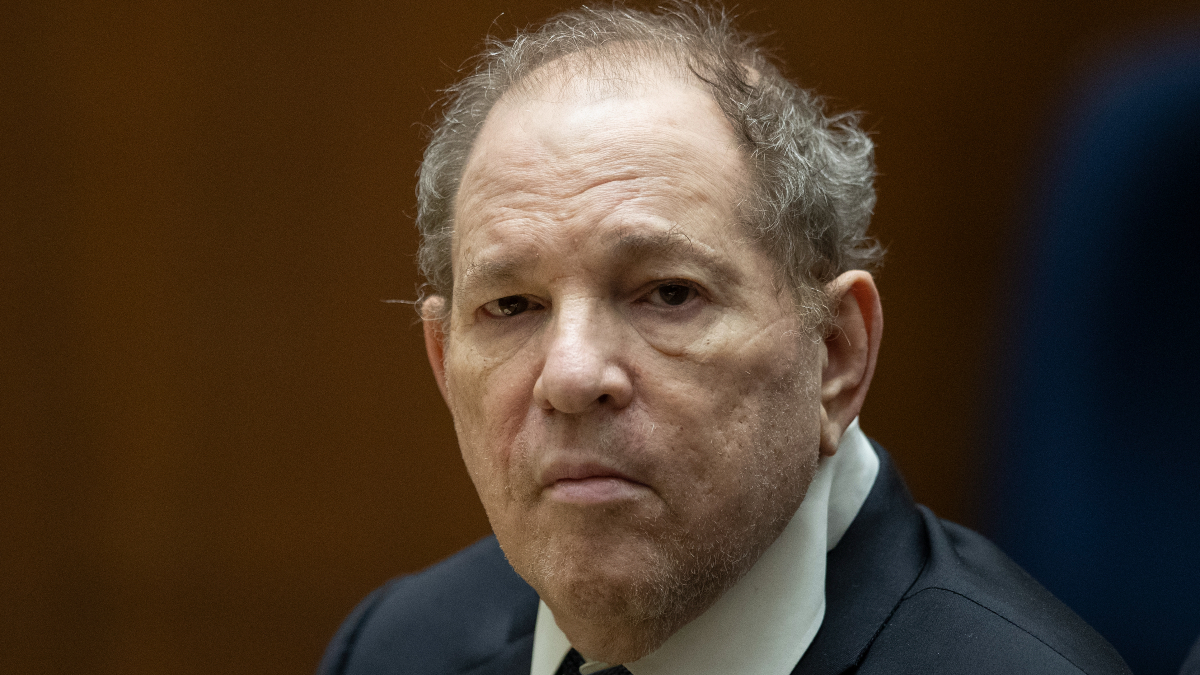Donald Trump announced today that he would be posthumously pardoning famed women’s suffragist Susan B. Anthony, who was convicted in 1872 for voting illegally. The choice to pardon Anthony is an odd one, since illegal voting has been one of Trump’s most-yelled-about issues lately, he’s never mentioned considering pardoning Anthony, and Anthony famously didn’t want to be pardoned while she was alive.
But Trump has been tweeting lately about how much he’s done for women (ha) so this is an unsurprisingly slapdash choice clearly made to try to win over those white suburban “housewives” he’s always talking about. (It’s also a much better choice than some of the other possibilities for pardon people were speculating about.)
And let’s be clear: It is white women that this pardon is meant to appeal to. The move comes on the 100th anniversary of the ratification of the 19th Amendment, which is widely celebrated as having given women the right to vote. That is a gross, whitewashed oversimplification of what that amendment actually did–even setting aside the problem with the commonly used language of women being “given” their rights, as if they didn’t spend decades fighting tooth and nail to take them.
In reality, the 19th Amendment didn’t grant anyone the right to vote. What it did was prohibit the country and individual states from denying a person the right to vote “on account of sex.”
As Anna North writes in an article on Vox.com, “In other words, after its ratification, states were no longer allowed to keep people from the polls just because they were women. But officials who wanted to stop people from voting had plenty of other tools with which to do so.”
North goes on to write:
States could use poll taxes and other voter suppression tactics — already used across the country to deny voting rights to Black men — to keep Black women from voting. They could, and did, use those same tactics against Latina women. Indigenous women and many Asian American women lacked citizenship in 1920, meaning they couldn’t vote in the first place. All in all, the 19th Amendment was essentially for one group of women and one group only: white women.
That was, as North writes, by design. Black women were often asked to aid in the fight for white women’s rights, knowing they would not be reaping the same rewards. (Alternatively, they were also often excluded from the conversation entirely, as with the famed Seneca Falls convention, to which no Black women were invited.)
today is the 100th year anniversary of black women being still unable to vote after white women were allowed to.
— THE TAO OF NOW (@InTheNoosphere) August 18, 2020
In a personal essay published on Good Morning America Digital, Congresswoman Val Demings writes,
In suffrage movements, Black women often found themselves advocating solely for the rights of white women. In racial justice organizations, they found themselves advocating solely for Black men. In neither were they the priority and in both they were the first to be dropped or ignored in the face of headwinds. Black women learned early on, from lived experience, that a true fight for freedom had to mean freedom for everyone.
It wasn’t until the Voting Rights Act of 1965 that all women, all people truly got the right to vote. And even that is still largely just in theory. Voter ID laws and the refusal to let people currently imprisoned for a felony vote still disproportionately affect people of color, especially Black people, and the Supreme Court and Congressional Republicans have been chipping away at the Voting Rights Act for years.
In her own GMA Digital essay, Congresswoman Ayanna Pressley wrote about the struggles BIPOC still face today:
The right to vote remains a racial justice issue, and it is inextricably tied to the fight for economic, health care, education, housing, transit and environmental justice. The struggle for full and truly equal voting rights is part of the struggle to rectify the legacy of systemic racism and institutional oppression that has created deeply entrenched disparities and inequities in our nation.
We find ourselves in a moment of national reckoning; our communities face converging crises of public health, economic inequality and systemic racism. In this moment, the occupant of the White House and Republicans across the country see an opportunity to seize the crisis to prevent millions of Americans from exercising their right to vote, and to continue their campaign of cruelty and racism.
Watching Trump praise Susan B. Anthony and claim he’s all about supporting and empowering women while he actively works to disenfranchise Black and brown women, queer women, trans women, immigrant women, and anyone else that falls outside of his fictional view of the “suburban housewife” is mind-boggling. Seeing him issue that pardon without acknowledging any of the Black people who were and are imprisoned for violating unjust laws is unsurprising.
Susan B. Anthony was racist. No wonder trump is pardoning her. They’re kinfolk.
— Imani Gandy ☄️🌏🔥 (@AngryBlackLady) August 18, 2020
The passage of the 19th Amendment was no doubt historic, but let’s not kid ourselves over what exactly we’re honoring here. The women’s suffrage movement was built on a foundation of racism. We can celebrate these milestones without erasing that.
Rep. Pressley writes:
We look back to look ahead, grounded in the intersectional leadership of trailblazing Black women who fought for full enfranchisement.
Women like Ida B. Wells, Mary Church Terrell, Josephine St. Pierre Ruffin, Charlotte Forten Grimke, Frances Ellen Watkins Harper, Mary Ann Shadd Cary, Harriet Tubman and Sojourner Truth embodied the phrase “lifting as we climb” — the motto of the National Association of Colored Women (NACW), one of the first national organizations dedicated to addressing the intersectional inequities Black women face.
These women built the foundation for those who came after; without them, there would be no Shirley Chisholm, there would be no Ayanna Pressley.
(via , image: Justin Sullivan/Getty Images)
Want more stories like this? Become a subscriber and support the site!
—The Mary Sue has a strict comment policy that forbids, but is not limited to, personal insults toward anyone, hate speech, and trolling.—



